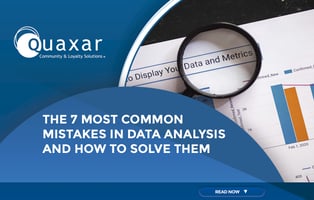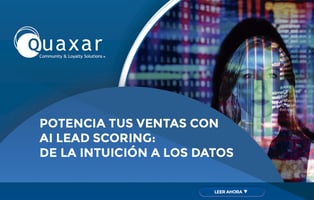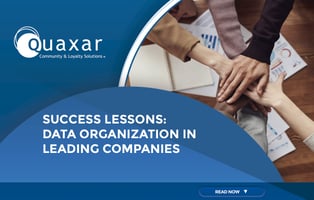Data analysis is essential for making informed decisions in various fields. However, it is common...
Boost Your Sales with AI Lead Scoring: From Intuition to Data
We know that every interaction counts for businesses and that the data collected grows exponentially each time, which is why you should not rely solely on intuition or manual processes to identify your potential customers. Competition is fiercer than ever, and marketing and sales teams need smart tools to maximize their resources.
This is where AI-Driven Lead Scoring comes in, a system powered by artificial intelligence and machine learning that transforms the lead qualification process, moving from guesswork to precision.
According to Forrester Research, companies that integrate AI into their sales processes can increase their conversion rate by up to 30%.
What is AI Lead Scoring?
Traditional Lead Scoring assigns points to prospects based on predefined criteria: demographic data, content downloads, email opens, or website visits. While useful, this method has limitations, as it relies on static rules and human interpretation.
AI Lead Scoring, on the other hand, uses machine learning algorithms to analyze large volumes of data, detect hidden patterns, and predict which leads are most likely to become customers. Most importantly, the system continuously learns and adjusts in real time, enabling more accurate and dynamic segmentation.
According to McKinsey, organizations that adopt machine learning in their customer management report a 50% increase in qualified lead generation
How AI-Driven Lead Scoring Works
- Multi-channel data collection: The system integrates information from social media, emails, website interactions, purchase history, forms, and even behavioral data.
- AI model training: Through historical analysis, AI identifies which attributes and actions are common among leads that convert into customers.
- Real-time prediction and scoring: Each lead receives a dynamic score based on their likelihood of conversion.
- Constant feedback: The model improves with each interaction, adjusting its predictions and increasing its accuracy.
Benefits of AI Lead Scoring
- Greater accuracy in prioritization: Eliminates human bias and focuses on metrics based on real data.
- Shorter sales cycle: According to HubSpot, teams that prioritize leads correctly can reduce sales cycle time by up to 20%.
- Campaign optimization: Marketing becomes hyper-personalized, increasing engagement and response rates.
- Scalability: Automatically manages large volumes of data, something impossible to achieve manually.
- Better alignment between marketing and sales: By having the same objective reference, both teams work with more qualified leads with greater potential.
The future of Lead Scoring is in AI
AI-Driven Lead Scoring not only allows you to predict which leads are most likely to become customers, but also helps you understand the reasoning behind each decision. This explanatory capability is key for marketing and sales teams to not only execute, but also continuously learn from the data and adapt their strategies with greater precision.
In the future, the integration of Lead Scoring with AI will be even more powerful when combined with other technologies such as predictive analytics, marketing automation, and intelligent chatbots, generating complete ecosystems in which every interaction with a customer translates into valuable and actionable information. In fact, IDC studies predict that by 2030, more than 70% of strategic sales decisions will be supported by artificial intelligence.
In addition, AI Lead Scoring will enable companies to move toward a model of total personalization, where each lead receives communications, offers, and experiences tailored to their profile and behavior in real time. This not only increases conversion rates but also customer retention and long-term loyalty, which are critical in highly competitive markets.
Companies that adopt artificial intelligence as the core of their lead scoring strategies will be better positioned to scale their businesses, optimize their resources, and ensure sustainable growth. The shift from intuition to precision is not just a trend, it is a necessity for survival and success.



